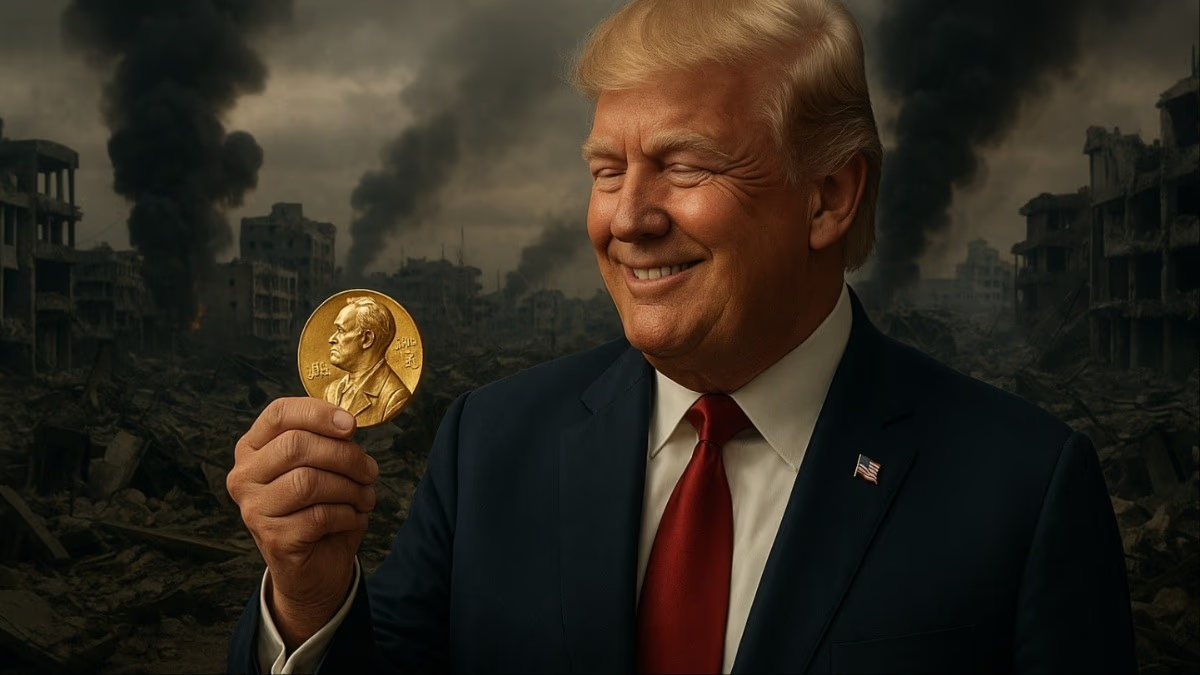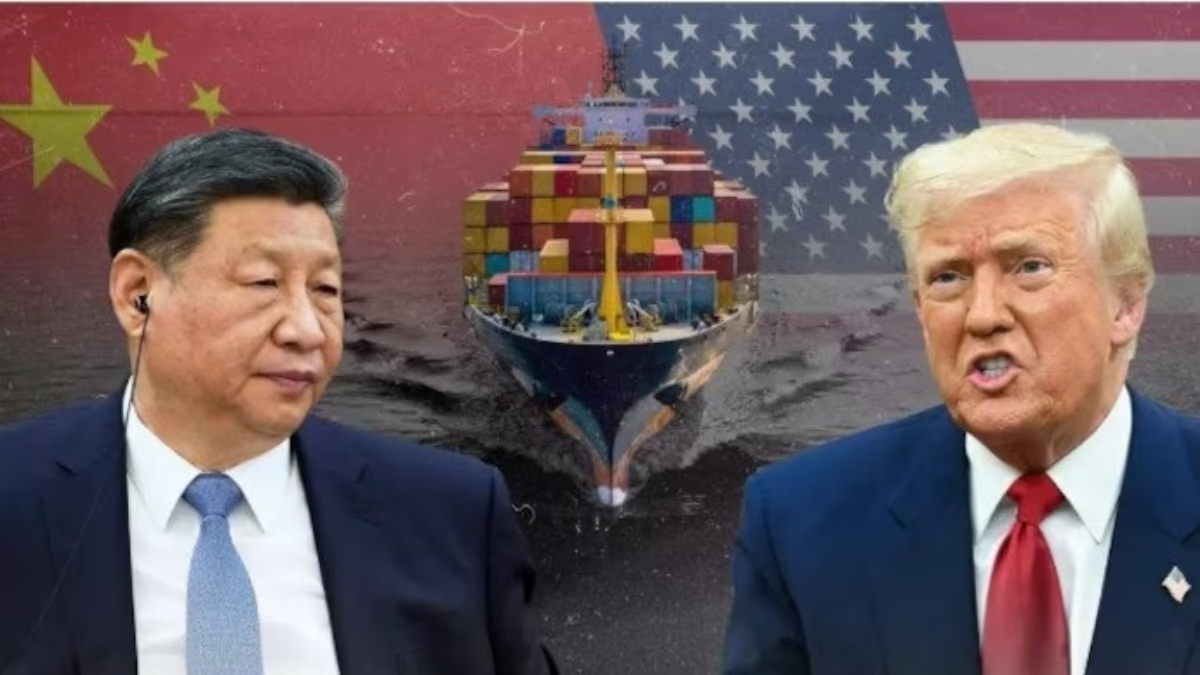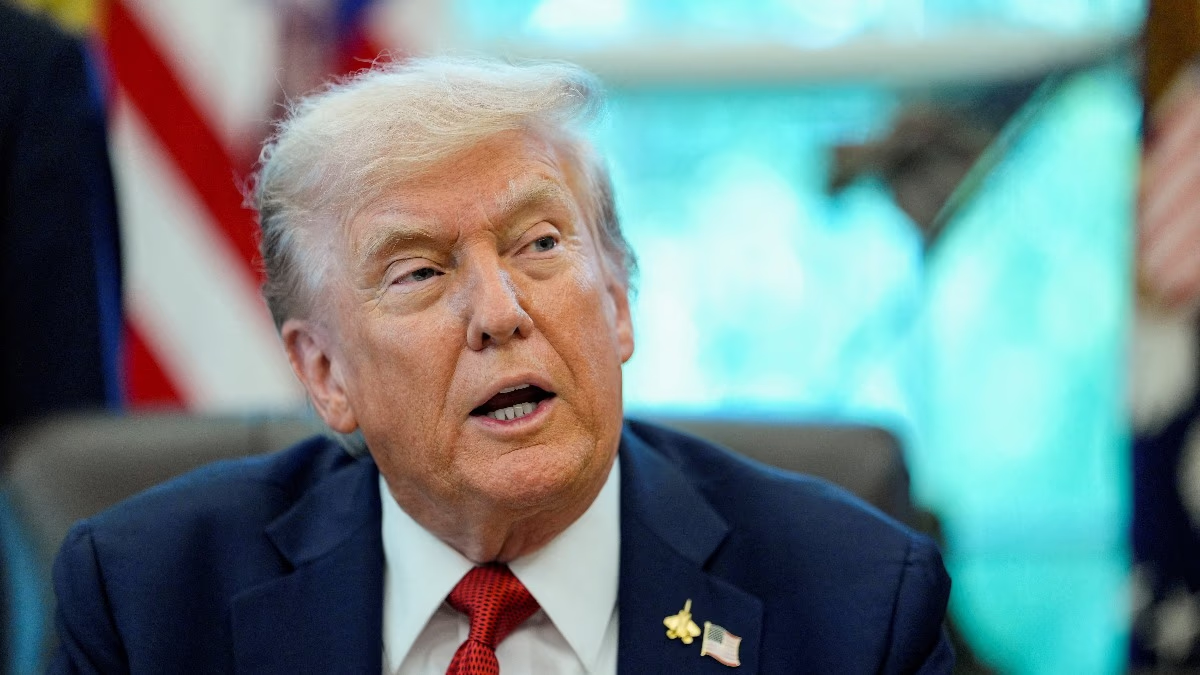Since assuming office in January, US President Donald Trump has been pushing for the Nobel Peace Prize, sparking interest in the potential award recipients. The Nobel Prize announcements began on Monday, with the medicine award going to Mary E. Brunkow, Fred Ramsdell from the USA, and Japan's Shimon Sakaguchi.
Physics award announcements come on Tuesday, chemistry on Wednesday, and literature on Thursday. Despite Trump's claims, many experts believe his chances of securing the Nobel Peace Prize this year are slim.
Nina Græger, Director at the Peace Research Institute Oslo, stated, 'Trump's statements don't indicate a peaceful perspective.' She emphasized the difficulty Trump faces in winning the prize this year.
Trump has continually claimed credit for ending seven global conflicts and insists he deserves the Nobel Prize for his efforts. He reiterated this claim on Tuesday, saying he is now moving towards resolving an eighth conflict.
If Israel and Hamas accept his peace proposal to resolve the ongoing two-year conflict in Gaza, Trump claims stopping the Gaza war will be his eighth achievement.
Addressing military leaders at the Marine Corps Base Quantico in Virginia, Trump posed, 'Who else has ended this many wars? But will they give me the Nobel Prize? Absolutely not. They'll award it to someone who has done nothing.'
Veteran Nobel authorities claim the committee evaluates continuous, multilateral efforts over short-term diplomatic feats. The Henry Jackson Society's historian, and Research Fellow Theo Zenou noted Trump's initiatives haven't shown any lasting impact yet.
Reports from news agency AP cited Zenou expressing doubt that such a prestigious award would be given to someone who denies climate change. Looking at previous winners, known for their bridge-building in society, international cooperation, and reconciliation, similar commendations couldn't be made for Trump.
Experts suggest that Norway's Nobel Committee usually selects winners based on lasting peace, international fraternity, and peaceful contributions of institutions. Trump's record often runs counter to these criteria, as he has criticized multilateral institutions and ignored global issues like climate change, potentially undermining his prospects.
Nevertheless, Trump seems eager to keep the Nobel conversation alive. Recently, at the United Nations General Assembly, he mentioned, 'Everyone says I should get the Nobel Peace Prize.'
Trump's remark is significant as individuals cannot self-nominate for the Nobel Prize.
Since 2018, Trump has been nominated multiple times for the Nobel Peace Prize. Last December, US Congressman Claudia Tenney nominated him, citing his role in the 2020 Abraham Accords between Israel and Arab nations as deserving of the Nobel.
This year, Israeli Prime Minister Benjamin Netanyahu and Pakistan's Shahbaz Sharif government also advanced his nomination, but these submissions weren't eligible as they were made after the 2025 deadline of February 1.
The nomination cut-off for the Nobel Peace Prize was January 31, 2025. As it stands, without a previous nomination, Trump cannot receive the prize this year.
The Nobel Committee caught flak in 2009 when it awarded the then-President Barack Obama barely nine months into his first term.
Many argued Obama hadn't accomplished enough at the time to merit the peace prize. Thus, should Trump receive it, the committee might face significant backlash.
Trump's contentious political history and policy decisions pose challenges for the Nobel Committee. Experts say the 'Nobel committee operates beyond political pressures, and Trump's controversial persona complicates their selection process. The committee wouldn't wish to repeat the 2009 controversy.'
If Trump mediates a lasting ceasefire and peace establishment in Gaza in the coming months, he could become a strong contender for the Nobel in 2026.
Former Australian Prime Minister Scott Morrison remarked, 'If Trump succeeds with his plan, he should be awarded the Nobel—such a significant peace effort hasn't been seen in recent years.'
Representatives from Israel and Hamas have begun indirect talks in Sharm el-Sheikh, Egypt, to end the two-year Israeli-Gaza war. This is regarded as the most significant effort to end the war to date.
Israel and Hamas are negotiating Trump's 20-point peace proposal, which Israel has wholly approved, and Hamas has partially accepted. Though it is merely a framework spanning a few pages, critical disagreements remain. Permanent peace in Gaza hinges on resolving these four issues—
As per Trump's plan, all hostages must be freed within 72 hours of the agreement. It's believed 48 Israeli hostages remain in Gaza, with about 20 alive. While Hamas has agreed in principle to an 'exchange formula,' it's unclear if it will release the hostages without the entire agreement being fulfilled first.
Distrust runs deep between both parties, highlighted by Israel's air strike on Hamas's Doha negotiation team last month. Qatar was irate over this, prompting an apology from Israel due to US pressure.
Israel's principal aim remains to dismantle Hamas entirely. Though Trump's plan requires Hamas to disarm, the group has stated it will do so only with the establishment of a Palestinian state.
Hamas's latest response makes no mention of disarmament, indicating its persistent stance against laying down weapons.
Israeli Prime Minister Netanyahu remains firm in his stance, asserting, 'Hamas will be disarmed, and Gaza will be demilitarized, be it the easy or hard way.'
According to Trump's proposal, Hamas won't retain power in Gaza once the war concludes. Instead, governance will move to a temporary Palestinian technical committee overseen by the Egypt-based 'Board of Peace.' Both Trump and former British Prime Minister Tony Blair would lead this board. Eventually, governance would transition to the Palestinian Authority (PA).
However, Netanyahu objected to the PA's role, and his far-right allies do not recognize the PA either. Meanwhile, Hamas insists on remaining part of a unified Palestinian movement, unacceptable to both Israel and Trump.
Trump's Gaza plan outlines a phased withdrawal of the Israeli military from Gaza. In phase one, 55% of the area remains under Israeli control, decreasing to 40% in phase two, eventually leaving just 15%—a 'security perimeter' until Gaza is 'free of terrorist threats.'
Yet, Trump's plan lacks a clear timeline for Israel's complete withdrawal from Gaza, which Hamas deems unacceptable. Additionally, mapping discrepancies between the White House release and Israeli military outlines have sparked disputes.




